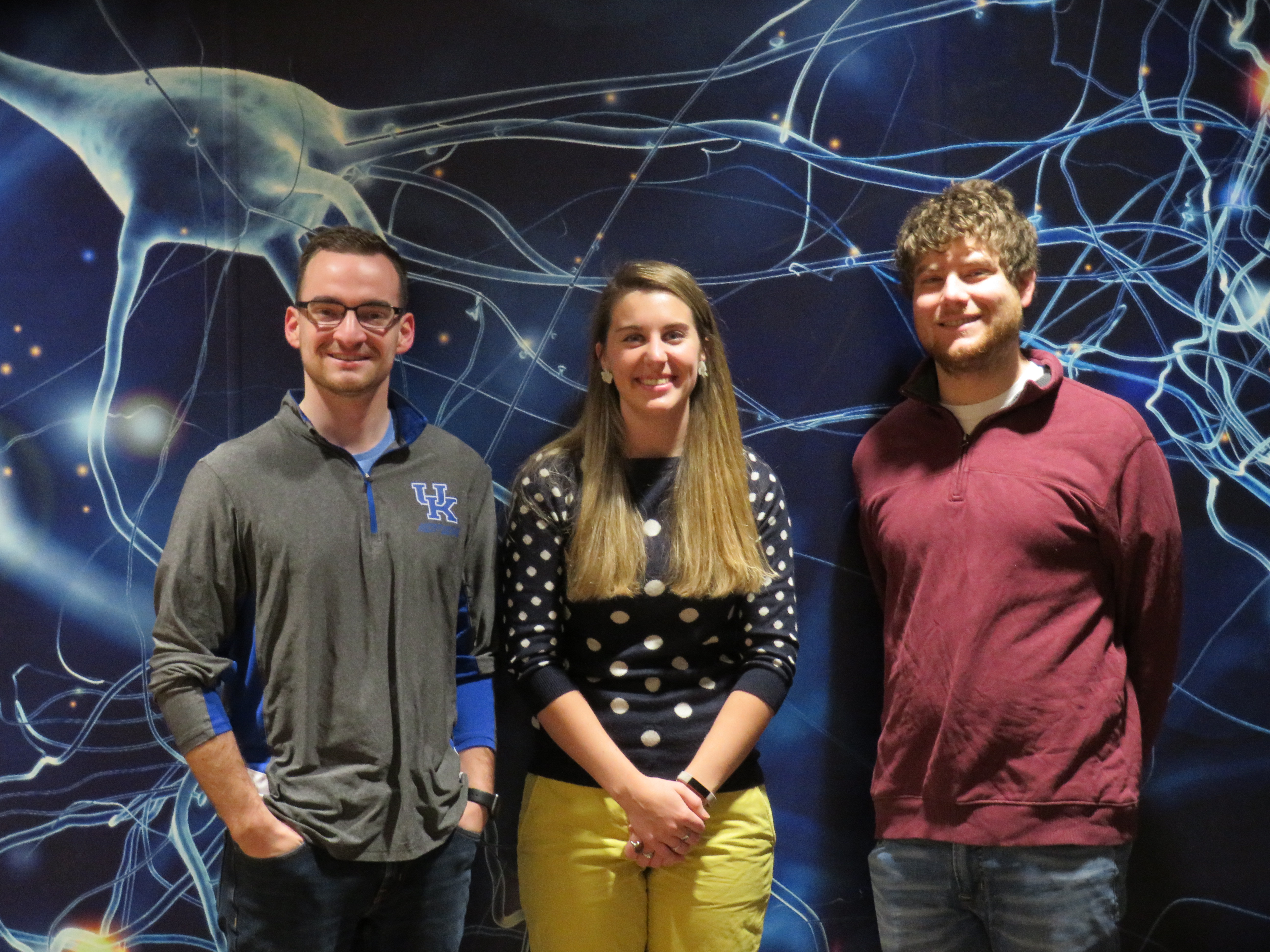AHA Awards Pre-Doctoral Fellowships to Graduate Students
November 19, 2018 - The University of Kentucky has been awarded grants totaling over $160,000 by the American Heart Association.
These pre-doctoral grants will fund research into cardiovascular disease and health. Three graduate students have been awarded $26,844 per year for the next two years.
The grants have been awarded to:
Brooke Ahern, graduate student in Dr. John Satin’s lab, Department of Physiology, project relates to heart failure with reduced ejection fraction. She will study and test the overall hypothesis that Rad is a negative modulator of calcium current through the LTCC, which can be removed through phosphorylation. A long term goal of the project involves a greater understanding of the signaling with Rad and the LTCC, and how it may serve as a therapeutic target.
Brandon Farmer, graduate student in Dr. Lance Johnson’s lab, Department of Physiology, to studythe apolipoprotein E gene, which is a strong genetic predictor for vascular dementia and carries significant risk for cardiovascular disease. The project seeks to understand how the E4 isofom of apolipoprotein E, the strongest genetic risk factor of Alzheimer’s Disease, causes a state of lipid mismanagement in astrocytes. Brandon will be studying this in vitro utilizing an immortalized cell line, in vivo in animals in our mice model, and translate m findings to post-mortem human brain specimens in collaboration with the Alzheimer’s Disease Center at Sander’s Brown Center on Aging.
David Henson, graduate student in Dr. Vincent Venditto’s lab, Department of Pharmaceutical Sciences, to study the hypothesis hypothesize that increasing ApoA-I/IgG ICs and decreasing free anti-ApoA-I IgG via targeted immunomodulation will decrease development of atherosclerosis in mice with an aim of utilizing findings to serve as a platform for translation as a therapeutic strategy to improve cardiovascular outcomes in patients.
Congratulations to these students and their accomplishments on receiving these awards!
Cardiovascular disease is the leading cause of death in the United States. Through the AHA’s grants, these students are able to make advancements in finding a cure for heart disease.
